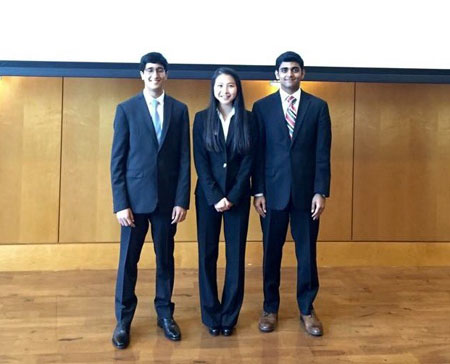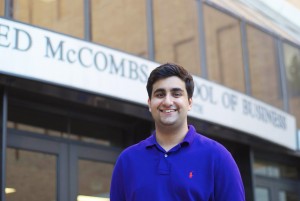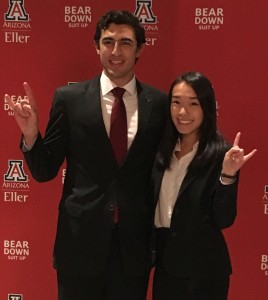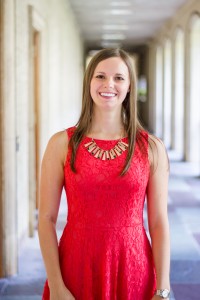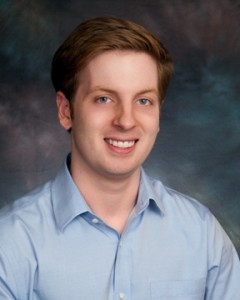 Mac Shropshire graduated from BHP in 2010. After working for four years at Halliburton in an accounting function, Mac took a finance role with Resource Environmental Solutions (RES), a company focused on providing ecological offsets. Mac is currently a Financial Analysis Manager for RES. RES is currently looking for students interested in interning over the summer. If you are interested in this opportunity, contact Mac at mac@res.us.
Mac Shropshire graduated from BHP in 2010. After working for four years at Halliburton in an accounting function, Mac took a finance role with Resource Environmental Solutions (RES), a company focused on providing ecological offsets. Mac is currently a Financial Analysis Manager for RES. RES is currently looking for students interested in interning over the summer. If you are interested in this opportunity, contact Mac at mac@res.us.
What does Resource Environmental Solutions (RES) do?
We provide ecological offset solutions to clients when they have unavoidable impacts that they are required to mitigate for prior to receiving a permit. We work with oil and gas, refining, government, essentially anyone whose project cannot avoid an environmental impact. They are required to offset the damage they are going to do prior to receiving this permit. The rule was established under the Clean Water Act.
RES was founded in 2007 and last fall we acquired a company called EBX, which had been doing this kind of work since 1997. The industry kicked off under the first Bush presidency. He instituted a “no net loss” wetlands policy, and then the modern mitigation banking industry further cemented with something called the Final Rule in 2008, which encouraged third-party mitigation, as opposed to only government-run programs.
You have been there for nearly two years now. How has your role changed in that time and what are you responsible for?
As time has gone on, I have been able to shoulder more responsibility. I started doing solely management reporting and project valuation work. Now I find myself regularly pulled into sales, land, and regional planning meetings. Essentially all aspects of our financial decision-making.
Working at a startup, I’m required to wear many hats: financial planning and budgeting, M&A work, such as acquiring EBX, management reporting, and raising capital. We are moving to a new ERP system, and I am helping with implementation for that. I got to flex some writing and powerpoint muscle when we created a presentation for lenders to increase our borrowing base.
Prior to your work at RES, you were an accountant for Halliburton. Why did you decide to make the move from accounting to finance and to move to RES?
I was approached about RES by a recruiter. I had been looking to move to a smaller organization and the industries that RES worked in aligned with my personal interests. I thought I would enjoy working for a start-up where I would have a wider breadth of responsibilities. At larger companies, you are asked to do more specific work, and your involvement in other areas is limited.
I am still involved in accounting work and my accounting education gave me a great background, but going to a smaller company gave me the opportunity to be in a finance role. I was always more interested in finance work. I was actually given a test when I applied for RES that was a case study for finance, not so different from what I saw at McCombs. My performance on that test was a reason I got the job. I was thankful for the number of case studies we got in BHP. I really felt prepared for that test using skills I developed in BHP.
What was your role at Halliburton and what skills did you gain from your experiences there?
When I started my career there, I did management reporting work, then I transitioned into SEC reporting. I was vetting numbers and drafting footnotes for public filings. I also got to work with the investor relations team. Halliburton really helped me in terms of learning what it is like to work in a controlled environment. It was also helpful to learn interdepartmental coordination skills. They had 80,000 employees by the time I left and I was working with people from various countries and departments around the globe. Doing SEC reporting, it is incredibly important to get multiple sources to vet a single number, so that really helped me with my attention to detail.
RES is committed to environmental responsibility. What do you most enjoy about working for a company that is committed to a cause?
It makes it easier to work the long hours when your company has a mission that you support. It has been very eye-opening to me to see this as a path to sustainability. It was a novel concept to me for there to be a for-profit business that is helping the environment. In its infancy, ecological offsets were primarily done through government-run in-lieu fee programs, and a lot of time the work wasn’t getting done. In contrast, RES has restored over 32,000 acres of wetlands and 155 miles of stream (with 0% site failure) and planted over 8 million trees. We have done a lot of amazing conservation work as a for-profit company.
There is a lot of discussion right now about ecological offsets. Where do you think RES is headed in the future and what role will they play in that growth?
Newer ecological offset markets for us have been water quality and endangered species offsets. A lot of the work we have done historically has been under the Clean Water Act, but these newer markets are driven by state laws and the Endangered Species Act. I also see us expanding our geographical footprint. Sometimes it requires a company like RES to come into a market to bring it up to speed and to bring them away from government-run programs and into mitigation banking.
RES has been recognized as one of the fastest-growing private companies in America by the Inc. 5000 list for the past five years. What are the challenges of working at a company growing so fast?
I would say meeting everyone. When I started here there were only 40 people and now we have more than 80. Every hiring decision is an important one. You have to look ahead to hire for the work you are doing in the future, not just today.
Looking back on your time at UT, is there anything you wish you had done differently or any advice you have for current BHP students?
I would have branched out beyond the business school and taken more science classes than what was required of me. I would have used my elective classes to take science, computer programming or MIS classes. I have had to teach myself a lot of that.


